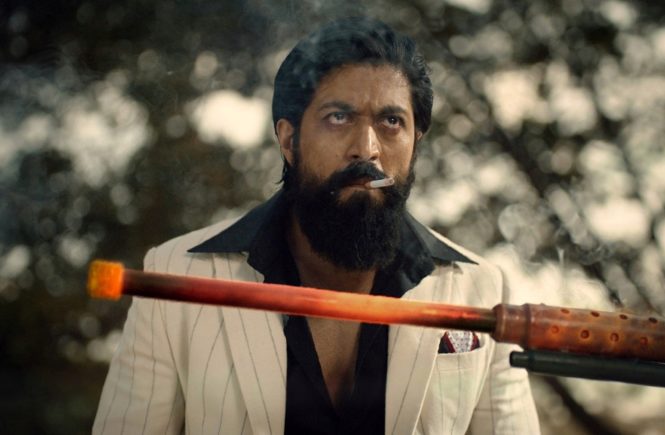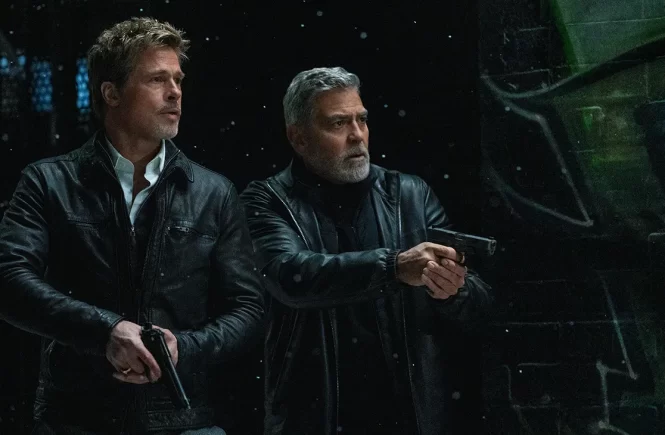This is a film filled with good people trying to do good things. It isn’t concerned with being logical or overly well put together but is rather interested in spreading an important message in the most entertaining way possible, so we can laugh and learn, and in this respect the movie works very well. It also functions very much as a hero vehicle for Mahesh Babu, who fits the role perfectly, almost as if the character was written with him specifically in mind. Though the film may have major issues, it really overcomes a lot of its faults due to a charming performance from Mahesh and a social message that is relevant and, at the end, quite effective.
The film has been blasted in the critic circles for being generic. And though I agree that some aspects of the film are quite generic, such as the conflict between Mahesh Babu and Jaggapathi Babu, which we have seen many times over and over again. However, there are parts of the film that, even though I’ve seen many times before, felt fresh. And I think a lot of that has to do with how Mahesh Babu was represented in the film. His clean look, especially in the college scenes, and simply his charming personality elevated these scenes that could easily have become bland. However, the film does suffer from a lengthly run time, and there are moments when even Mahesh Babu’s presence can’t really save you from yawning in the theater.
A lot of the strength of this film though does comes from Mahesh’s presence, who seems more confident in his abilities than ever before and delivers one of his best performances. But the film takes on another level when it begins to deal with the social issues facing farmers today. Some of the images that the director Vamshi Paidipally creates in the second half of the film are awe-inspiring. My favorite being that of an old farmer walking back to his fruitful field in the middle of an empty patch of land that has been abandoned by other farmers. It’s a staggering image that really sums up the themes of the film.
My main issue; however, was that this was really two films in one that didn’t quite mesh together, the first half being more light-hearted and dealing with issues of family, success and failure while the second-half goes into a more social awareness route sometimes even border-lining on being preachy. My issue is that these two halves don’t really come together, the themes of the second half are completely absent in the first and the themes from the first half are lost in the second. In this respect the film isn’t as coherent as it could be but then again it really doesn’t need to be. But what is there works very well. The first half functions to entertain the audience while still having enough emotional weight and conflict to keep it going. I thought the family dynamics between how you are and how your family wants you to be, college culture and what success is and whether it’s really important, were well developed. You could argue that this is all generic but this all gets you to think and often the film was able to make me think back onto my own life, and I love it when a film can do that, generic or not. The second half goes into other issues that are only related to the first half by a loose thread and I think this would’ve been a more effective film had it been able to incorporate the themes of the first half. The second half is also where the film get a little draggy but there is enough interesting images and themes being developed that I wasn’t bored.
I also think a lot of the issues of the film arises from Maharshi being a hero vehicle for Mahesh, it’s really a blessing and a curse of the film because Mahesh’s presence elevates every scene but I believe it also stops the film from going deeper and being as emotionally resonant as it could be. Mahesh’s presence means he has to win, he has to be massy, and more than anything else he has to get his way, and he does whenever the film finds it convenient for him to do so. Thats why there isn’t much tension in the big conflicts of the film, its just in the matter of how they play out and what you learn from them that really makes the biggest impact.
At the end of the day I quite liked Maharshi for what it was. It knows itself and doesn’t try to go beyond that, it falls into a lot of cliques and writing issues because of it but I believe it achieves something greater in the long run. A lot of Mahesh’s films these days seem to be following a similar formula, they are entertaining with a social message. Moreover, the formula works, the audience laughs and learns, and maybe even at times distills something from the film into their own lives. This is why I can let go of the films many faults because this to me is a truly great achievement.




